Miracle Babies Now Thriving Twins
Posted on February 4, 2022 By Editor Top Stories
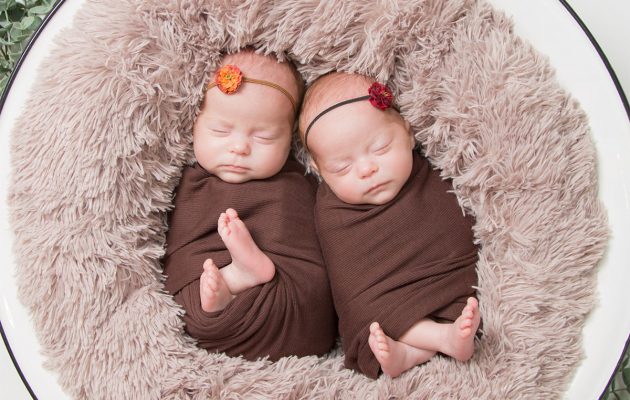
Parents praise Wolfson NICU intervention
Across town, two sets of twins—teens and toddlers—are thriving today thanks to Wolfson Children’s Hospital’s exceptional NICU.
The premature high-risk infants spent the first weeks of their lives in the neonatal intensive care unit where, by all accounts, “miracle workers” kept them alive and nurtured their tiny bodies through critical growth milestones. Their parents credit that exemplary early care with their children’s good health today.
Todd and Jessica Bork’s now 13-year-old boys were born 12 weeks early at 28 weeks on May 25, 2008. Joshua weighed 2 pounds, 7 ounces and Jackson weighed 2 pounds, 13 ounces. Ryan and Stefanie Beaubouef’s 2-year-old girls were born seven weeks early on Aug. 10, 2019. Harlee weighed 2 pounds, 10 ounces and Hadlee weighed 3 pounds, 12 ounces.
“Without Wolfson’s intervention, my family wouldn’t be what it is today,” said Jessica. “It’s priceless what they give you. You bring your babies home and they are healthy and eating and breathing. There is no way to express how great it is to have a hospital like that close by.”
“We wouldn’t have wanted to be anywhere else,” agreed Stefanie. “They are fantastic and compassionate … the top of the line for children’s health care. We appreciate every single person that took care of our babies and how they wake up every day happy to do what they do.”
Although they did not get to experience it, both families are excited about Wolfson’s 89-bed high-level NICU that opened early this year in the Borowy Family Children’s Critical Care Tower. With its vastly improved amenities that include overnight accommodations for parents and play areas for siblings, they would not have had the agony of leaving their newborns at night. Yet they felt secure knowing their twins were receiving superior care at one of the highest rated children’s hospitals in the country.
“When we had to leave at night we were nervous but knew the twins were going to be fine,” said Stefanie. “You can call every 10 minutes for an update if you want to.”
Borks: Fortunate to have Wolfson right here
The Borks describe their boys, seventh graders at St. Johns Classical Academy in Fleming Island, as total opposites who are always together. Both fun, Jackson is more serious and Joshua is lighthearted and carefree. A little smaller than average for their age, they have no health deficits from their frightening births.
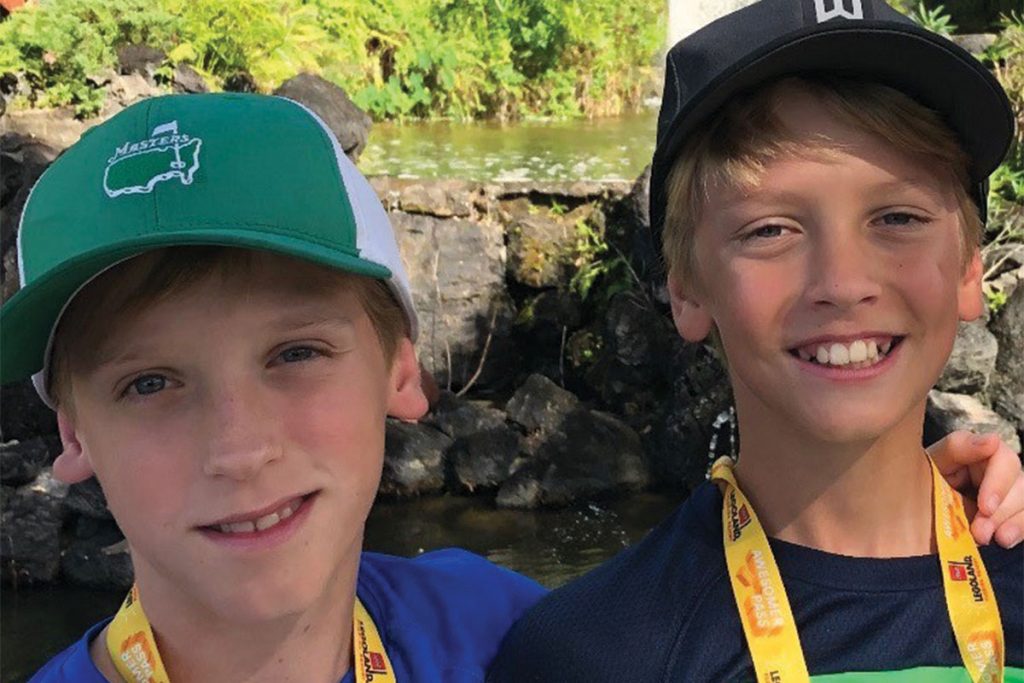
The Middleburg family includes daughter Jordan, born full term 11 years ago. “With the twins, we had to leave the hospital empty handed. We got to bring her home right away,” Jessica said.
Even though there were no problems with her twins’ developments, Jessica had a difficult pregnancy. Under the care of high-risk obstetrician-gynecologist Ramon Castillo, M.D., she was put on bedrest at 20 weeks, in and out of Baptist Medical Center Jacksonville. “The mother is the best incubator, so we try as much as possible to keep the babies inside. But sometimes nature wins,” Castillo said. “Significant risks associated with prematurity are related to organs not well developed or matured.”
Born by cesarean section, the twins were so small and thin they looked like play dolls, Todd said. Joshua had a blood infection and needed immediate treatment. “It was eye-opening to see them take a 2-pound baby not really ready to be born and have a team of doctors rolling piece after piece of equipment in there. It was scary but they did wonderful things,” he said. “There is nothing more precious than the life of a newborn and having that level of care is critical. We are very fortunate to have it right here.”
The twins were in the NICU nearly 100 days, starting off in incubators with their sensitive eyes covered and being tube fed. As they grew and progressed, nurses taught Jessica, her husband, her mother and even her grandmother how to touch, feed and care for them. “We started with skin to skin,” Jessica recalled. “As they were able to bottle feed, a nurse would do it, then I would do it.”
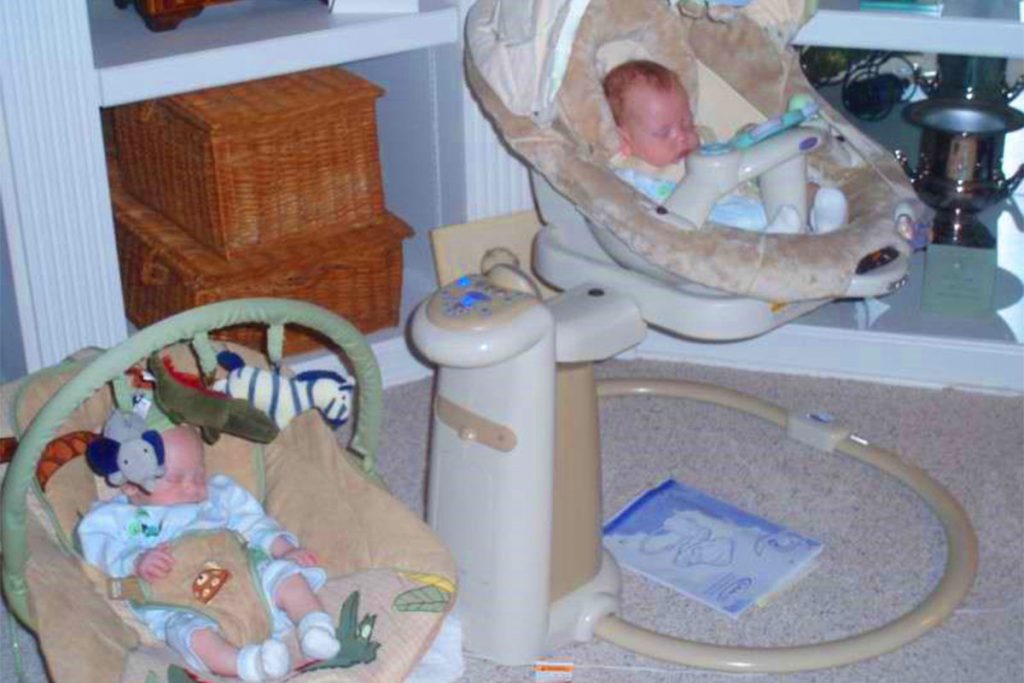
The family commended the staff on their diligence and continuity of care by requesting to specifically follow Joshua or Jackson and keeping the parents well informed.
“We appreciated that they were so supportive of the family and allowed us to be part of the twins’ care,” said Sherry Sniffen, Jessica’s mother. “At first all we could do was stick our hand into the incubator and let them hold a finger. It was a great honor for me and they needed to be touched and know someone was there for them.”
The boys had to pass the car seat test, being big enough to strap in, to be discharged, Jessica said. Follow-up appointments included audiology, ophthalmology and gastroenterology, with physical and occupational therapies lasting until they were at least 3 years old. “They were behind at least three months on walking and crawling but as they got older all the gaps started to close,” she said.
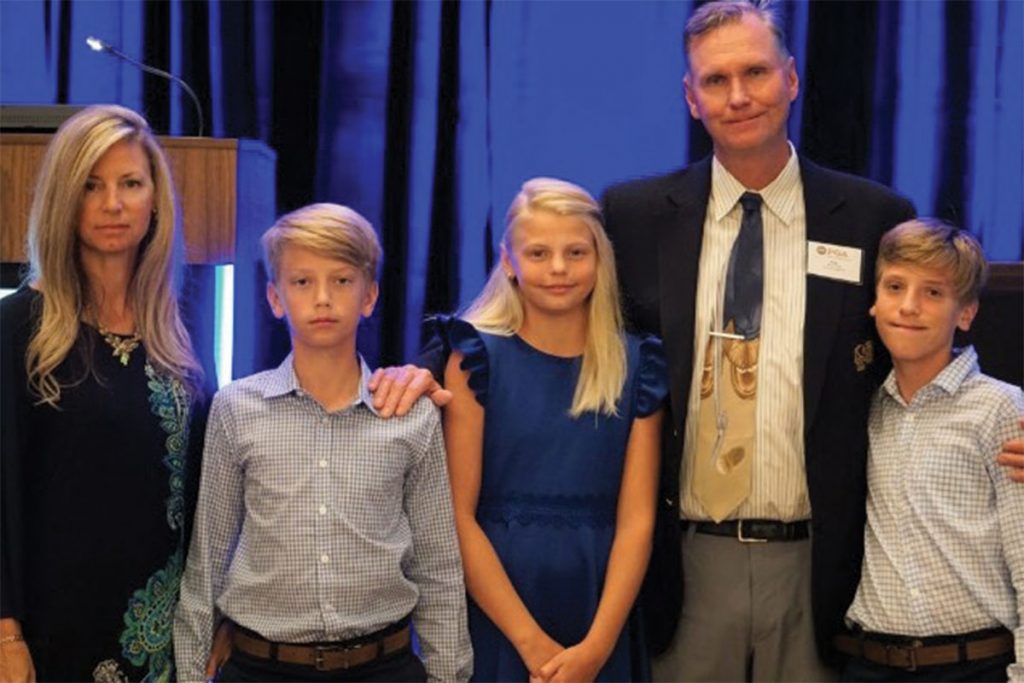
Besides being healthy, “all three are smart as firecrackers. We are blessed,” said Todd. The boys might be caring for others as adults. Jackson, diligent and a perfectionist, wants to be a heart surgeon. Having exceptional people skills, Joshua is eyeing pediatrics. Jordan, who excels academically like her big brothers, wants to be an engineer for Disney.
Beaubouefs: NICU staff passionate about jobs
Unlike the Bork boys, the Beaubouef girls were in distress before birth. Halfway through their pregnancy, Stefanie and Ryan received the alarming diagnosis of selective intrauterine growth restriction, a condition in which a baby doesn’t grow to normal weight during pregnancy. In their case, one twin was getting more nourishment and the other was not growing at the same rate.
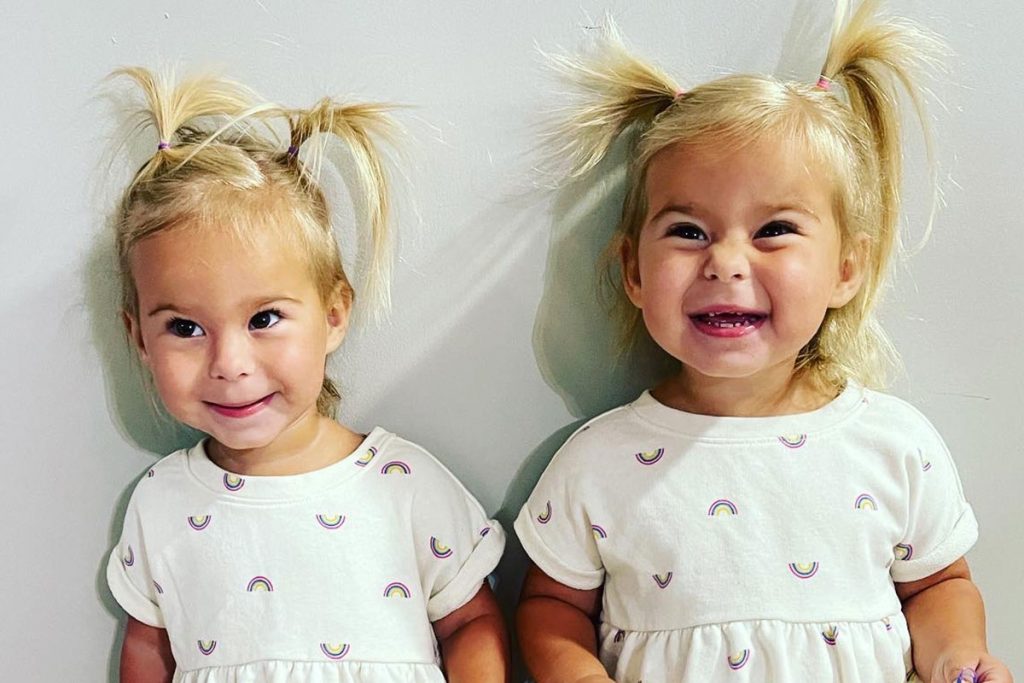
“Every Tuesday and Thursday we went for ultrasounds. When it got where Harlee was further and further away from what Hadlee would weigh they said there would be a better chance of her surviving if they took her out,” said Stefanie.
“The goal was to make it to 28 weeks to ensure they would be big enough to intubate, if necessary,” Ryan said. “At around 31 weeks they gave them steroid shots to help their lungs progress quicker. That helped a lot because they came out breathing on their own and did not need oxygen.”
Still, the fragile newborns faced life-threatening challenges and were hooked to multiple monitors for weeks after their birth by C-section.
“They looked like tiny skeletons. They had no meat on their bones at all. You could see their whole skulls and soft spots on top of their heads, and their cheeks were hollow,” Stefanie said. Experienced parents with older daughters—Harper, 8, weighed 7 pounds, 10 ounces at birth, and Hayden, 5, weighed 8 pounds, 4 ounces—they were uneasy handling their preemies. “I felt like I was going to break them,” Ryan said.
“You go in there terrified with no comprehension how it’s going to go. These people never get tired of explaining things. They are so kind and smart and they walk you through everything with a smile on their face,” Stefanie said. “You could tell they are very passionate about their jobs,” Ryan added.
Risk of infection was great and therapies addressed issues the Beaubouefs hadn’t considered. “The twins never got large enough to have to push against the uterus to build muscle so the therapists would work their arms and legs,” Stefanie said. “And they had occupational therapy because they didn’t have the natural instinct to suck, swallow and breathe at the same time.”
Stacey Wells, a registered nurse who helped care for the twins, said the state-of-the-art NICU team requires a combination of skill, critical thinking and compassion. Neonatologists lead the specialized team that consists of nurses, various therapists, pharmacists, dieticians and social workers—all dependent on one another. Parents are critical members, too.
“The NICU is a scary place. But despite their fears the Beaubouefs approached every day with such love and joy when they spent time with the babies,” she said. “Men tend to take a ‘charge position’ in crisis situations but I just remember the awe and love Ryan had for the girls each time he visited. I remember the sheer joy of Stefanie holding them together for the first time. There are hard, scary days in the NICU but those joyful moments we get to share with parents make up for them.”
“Our community is so fortunate to have this world-class pediatric hospital with its exceptional physicians and other health care professionals,” said Ryan’s mother, Judy Beaubouef, a longtime Wolfson supporter. “As with all my grandchildren, these two miracles bring me tremendous joy and I’m really grateful that Wolfson was there for my family and is there for other families. It’s always been a pleasure to support them.”
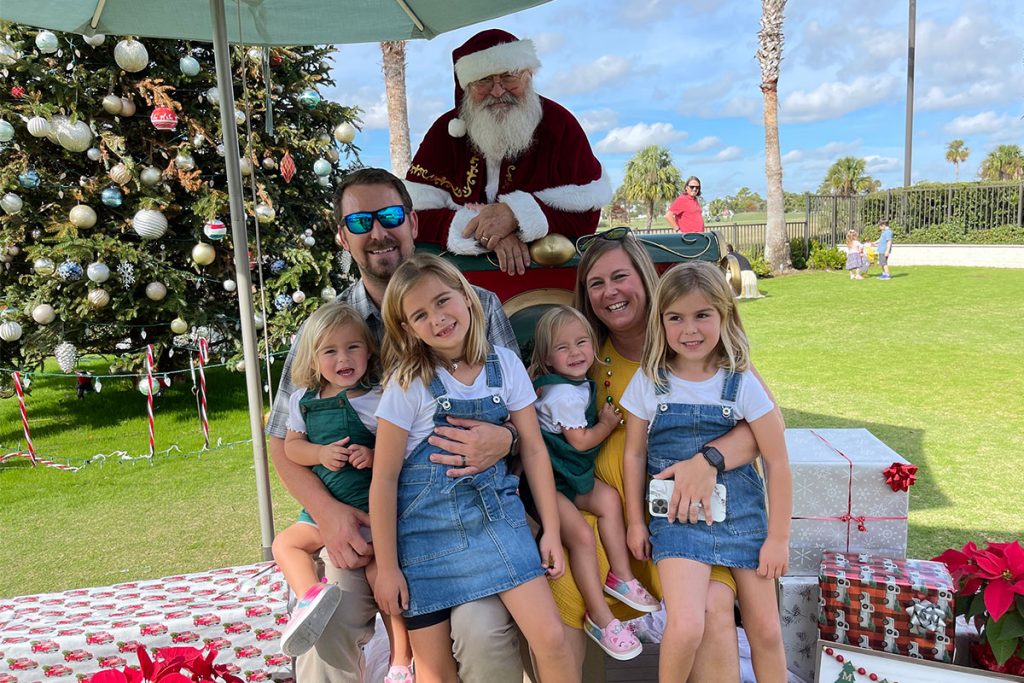
The twins’ release from the hospital to their East Fort Caroline home about seven weeks after their birth was a happy day for Harper and Hayden, who had seen their baby sisters only via Facetime. With four daughters under age 6, Stefanie and Ryan settled into a hectic routine that focused largely on protecting their delicate babies—with help from their adoring big sisters. They had already been sheltering the twins from people other than family and close friends when COVID-19 arrived a few months later, extending their isolation.
“They did not get a lot of social exposure when it came to the outside world,” Stefanie said. “Their teachers are pleased with how well they adjusted.”
Smallest in their class for 2-year-olds at Providence Preschool, the twins have no health restrictions. Chatterboxes and daredevils who like to climb and jump into deep water wearing protective gear, Harlee and Hadlee are friendly and funny. “They say they are each other’s names, then they laugh because they know you are going to catch them,” their mother said.
Harlee still weighs about 5 pounds less than Hadlee but doctors say she will eventually catch up. Both independent, Hadlee is more easy going and Harlee is more sassy and strong-willed, according to Stefanie. “They get along great and hold hands,” Ryan said, “and they love their big sisters.”
Doctor praises Wolfson’s support
The Bork and Beaubouef children are among the tens of thousands in Northeast Florida, Southeast Georgia and beyond who have received lifesaving care at Wolfson.
“Wolfson stands there with the best of the best. The personnel is just awesome. The neonatologists are miracle workers. The newborns can’t tell you what is wrong with them,” Castillo said. “We have great support from them. I deal with high-risk pregnancies. They deal with high-risk babies. It’s comforting to have that backup. If a premature baby is delivered, it’s going to a great place with great people and great results.”
How to help:
A not-for-profit hospital, Wolfson Children’s Hospital relies heavily on community support to serve all children, regardless of ability to pay. To contribute to Wolfson’s Hope Starts Here campaign to transform the delivery of critical care for infants and children, access hopestartshere.com. For questions or to make dedicated gifts to Wolfson, call (904) 202-6296.
By Lorrie DeFrank
Resident Community News




 (No Ratings Yet)
(No Ratings Yet)Hadlee Beaubouef, Harlee Beaubouef, Hope Starts Here, Jackson Bork, Jessica Bork, Joshua Bork, Ryan Beaubouef, Stefanie Beaubouef, Todd Bork, Wolfson Children's Hospital





